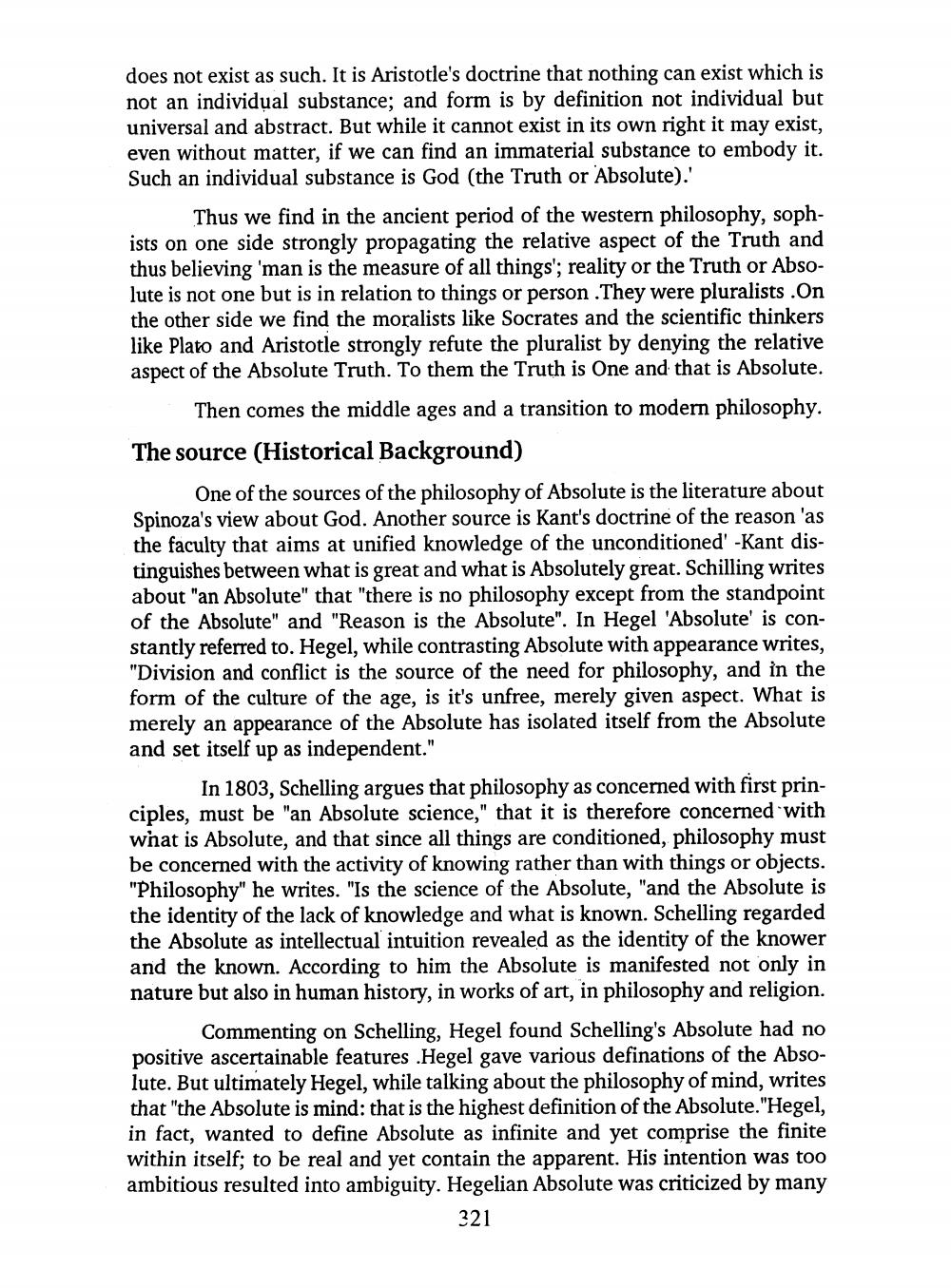________________
does not exist as such. It is Aristotle's doctrine that nothing can exist which is not an individual substance; and form is by definition not individual but universal and abstract. But while it cannot exist in its own right it may exist, even without matter, if we can find an immaterial substance to embody it. Such an individual substance is God (the Truth or Absolute)."
Thus we find in the ancient period of the western philosophy, sophists on one side strongly propagating the relative aspect of the Truth and thus believing 'man is the measure of all things'; reality or the Truth or Absolute is not one but is in relation to things or person.They were pluralists .On the other side we find the moralists like Socrates and the scientific thinkers like Plato and Aristotle strongly refute the pluralist by denying the relative aspect of the Absolute Truth. To them the Truth is One and that is Absolute.
Then comes the middle ages and a transition to modern philosophy. The source (Historical Background)
One of the sources of the philosophy of Absolute is the literature about Spinoza's view about God. Another source is Kant's doctrine of the reason 'as the faculty that aims at unified knowledge of the unconditioned' -Kant distinguishes between what is great and what is Absolutely great. Schilling writes about "an Absolute" that "there is no philosophy except from the standpoint of the Absolute" and "Reason is the Absolute". In Hegel 'Absolute' is constantly referred to. Hegel, while contrasting Absolute with appearance writes, "Division and conflict is the source of the need for philosophy, and in the form of the culture of the age, is it's unfree, merely given aspect. What is merely an appearance of the Absolute has isolated itself from the Absolute and set itself up as independent."
In 1803, Schelling argues that philosophy as concerned with first principles, must be "an Absolute science," that it is therefore concerned with what is Absolute, and that since all things are conditioned, philosophy must be concerned with the activity of knowing rather than with things or objects. "Philosophy" he writes. "Is the science of the Absolute, "and the Absolute is the identity of the lack of knowledge and what is known. Schelling regarded the Absolute as intellectual intuition revealed as the identity of the knower and the known. According to him the Absolute is manifested not only in nature but also in human history, in works of art, in philosophy and religion.
Commenting on Schelling, Hegel found Schelling's Absolute had no positive ascertainable features .Hegel gave various definations of the Absolute. But ultimately Hegel, while talking about the philosophy of mind, writes that "the Absolute is mind: that is the highest definition of the Absolute."Hegel, in fact, wanted to define Absolute as infinite and yet comprise the finite within itself; to be real and yet contain the apparent. His intention was too ambitious resulted into ambiguity. Hegelian Absolute was criticized by many
321




